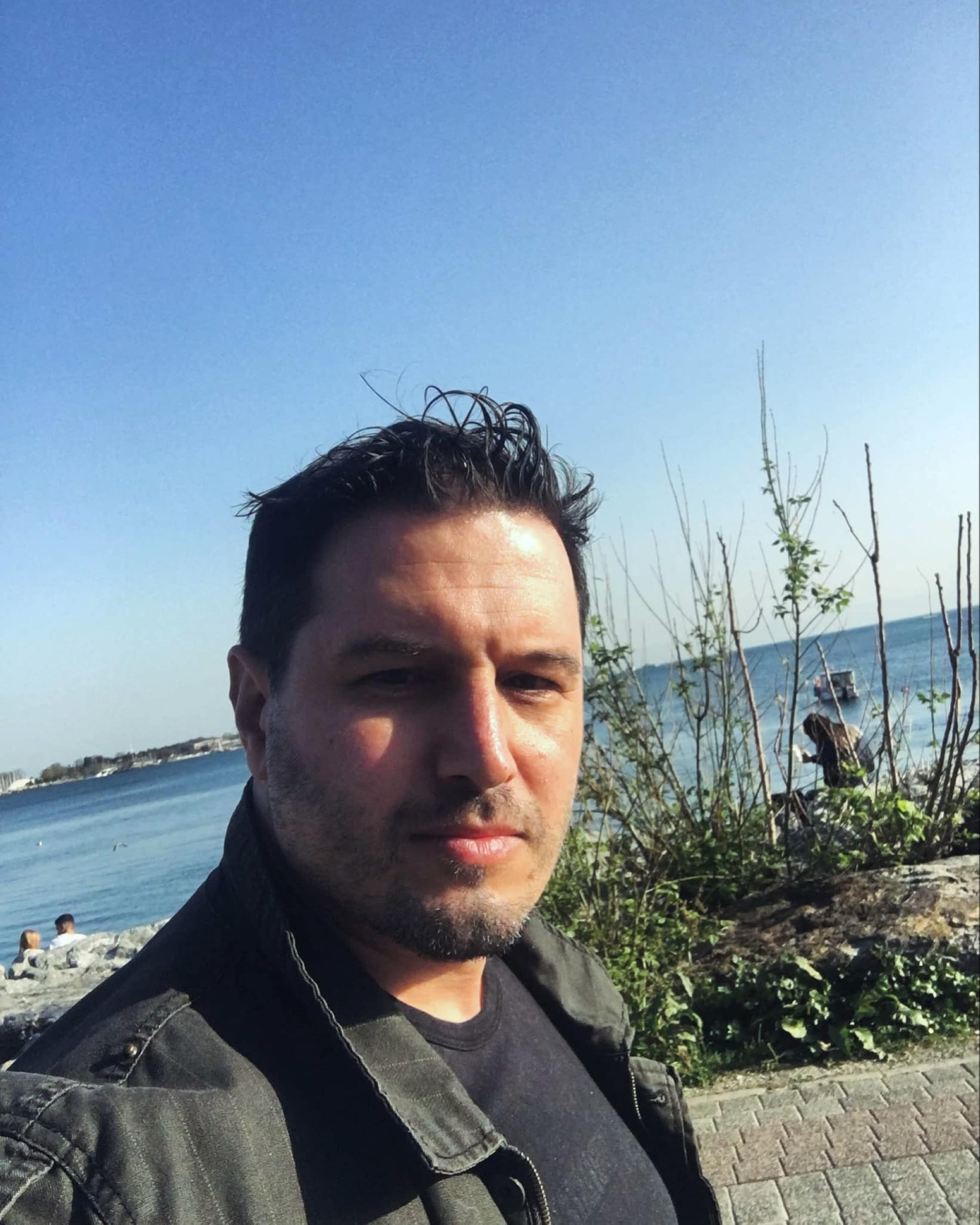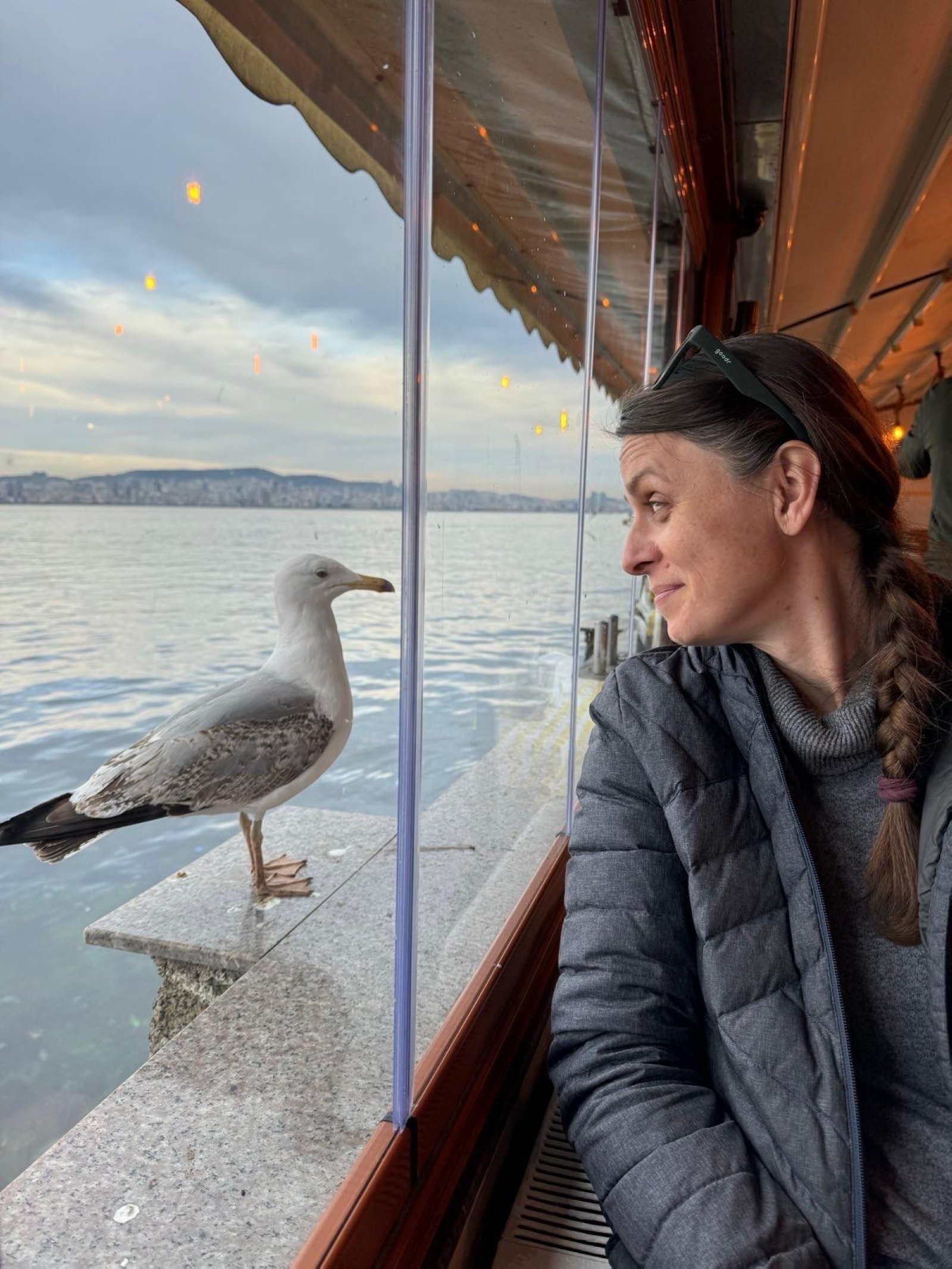© Turkuvaz Haberleşme ve Yayıncılık 2026
In the heart of Türkiye, from Istanbul’s chaotic streets to the quieter scenes of Ankara, expats, drawn by opportunity and culture, are trying to make the country their home. For some, the adjustment is more familiar. For others, this journey is marked by language barriers, misunderstandings and the slow process of finding a place in a society that, while welcoming, is not easy to become part of.
According to Berk Nail Aydın, a 25-year-old native Turkish citizen studying in Ankara, Türkiye is a bridge between Europe and the Middle East. “We live like both. People coming here need to understand this culture,” he said.
Like many Turks, he considered an expat’s contribution to the country as their most important role and emphasized that a foreigner has no place in disturbing the cultural environment of Türkiye.
On the other hand, Tevfik Sadullah, a 49-year-old translator from Istanbul, noticed that Türkiye benefits from interconnection with other cultures, stating: “It creates an understanding between people and breaks prejudices.”


Sadullah lives in Moda, a neighborhood in Istanbul’s Kadıköy district on the Anatolian side. Moda, as described by many Turks, is a more modern part of the city, filled with diverse residents. According to Sadullah himself, foreigners and locals here share many similarities.
However, he quickly pointed out that other parts of Türkiye and Istanbul may differ from Moda and that not all immigrants are the same as the expats living there.
"Some immigrants are perceived as a threat to locals' livelihoods and lifestyles due to the belief that 'the government helps them but not us,' which has fueled xenophobia," he noted.
Sadullah also acknowledged that in areas like Moda, many expats can afford housing more easily than Turkish citizens, driving up rents and pushing residents out of their own districts. With soaring real estate prices, finding a home in sought-after neighborhoods has become a growing challenge for many Turks, as previously reported by Daily Sabah.
A language barrier, loneliness and a change of rhythm – these are only a few obstacles that come with starting a new life somewhere, especially in such a historically rich and multicultural place as Türkiye.
Abdullah Shaikh, a 26-year-old student from Pakistan who lived and studied in Türkiye for seven years, noticed: “Many come to Türkiye expecting English to be widely spoken, while many locals believe that only Turkish should be spoken in Türkiye.”
Shaikh recalled often feeling isolated when groups would speak in Turkish, as many natives were not confident enough to speak English. He assessed that giving more importance to all second languages being taught in schools in Türkiye could close the language gap and allow better relations between foreigners and locals.
Many more agree with this, stating that the English level taught in schools is usually not enough for proper communication. Moreover, such barriers may result in even bigger troubles than isolation. For example, filling out various documents may become a real struggle.
According to Michaela Duvivier, a 22-year-old student from Germany who stayed in Ankara for one semester as part of an Erasmus program, sometimes it would be strenuous to complete some organizational or bureaucratic paperwork because of the language barrier.
Additionally, a 27-year-old expat from Morocco, Imane Talilti, highlighted Istanbul’s traffic issues and the fast lifestyle that might be hard for many foreigners to adjust to.
Seeing red lines on the online map – signaling major delays – is just part of daily life for Istanbulites, with traffic jams often adding hours to the journey. Pedestrians, too, must stay alert, navigating reckless drivers and speeding motorcycles, many of which are couriers racing to deliver packages.
“It is a struggle, especially for someone from a small town with a slow rhythm,” Talilti concluded.
Besides learning some Turkish, respondents shared more useful tips, including getting involved in local communities and being aware of bureaucratic processes, potential dangers and cultural differences.
“For students, I’d definitely say join student clubs, as it helped me a lot,” suggested Duvivier and added: “Be prepared to see a lot of stray dogs and cats. It wasn’t something that I expected, coming from Germany.”
The tragic stories of people in Türkiye getting attacked and even killed by stray dogs still haunt the news. While the country is trying to get these issues under control, people’s opinions are divided, causing ongoing debates that every newcomer should consider.
More important dangers are foreigner scams, as well as bureaucratic issues, warned Sadullah, a Turkish native. According to him: “You should never leave your official work to the day that you depart the country. I work with notaries and see people having trouble with this a lot.”
Since most foreigners' work permits are tied to their employer, quitting means losing the permit and having only a short time to stay in Türkiye. The visa or residence permit should also still be valid at the time of departure to avoid entry bans in the future.
On the other hand, there are many remote workers living in Türkiye whose residence permits aren’t dictated by their employers.
One of them is Sarah Howard, a 43-year-old digital nomad from the U.S. who works as a remote counselor and has been living in Istanbul since 2021. She highlighted the lack of knowledge many foreigners have about Türkiye, stating, “Many Westerners carry a lot of ignorance towards this region, but once you get closer to people, you see we’re not so different.”
Aydın, a local Turkish citizen, also stressed the importance of research before moving. “Foreigners need to understand the people, our political and economic situation, and our culture,” he said, emphasizing the country’s cultural diversity, as different regions and communities can vary greatly.

One of the cultural aspects a foreigner should know is that hospitality is a way of life in Türkiye – so much so that it’s even turned into a competition on TV, which is uncommon in other countries. But for foreigners, this warmth isn’t just for the cameras; many say Turkish people are some of the friendliest they’ve met.
“It made me happy to see how much more outgoing people are compared to Germany,” noted Duvivier.
She also praised how charitable locals were and recalled how people would explain things that she couldn’t understand during her Erasmus journey.
Howard expressed her joy in feeling close-knit with people in her neighborhood, as well as being surrounded by generosity.
“Even today, I was in the bakery, and they suggested I take some freebies. That doesn’t really happen in America,” she continued.
Shaikh stated that Turkish people are extremely friendly and hospitable, sharing nothing but love and Talilti, another foreigner, assured that for the past year and a few months of living in Istanbul, she only had pleasant interactions with people.
“In my opinion, when they feel that you’re trying to understand the culture and speak their language, they are more open, and that’s exactly what happened to me,” she observed.
Becoming an expat anywhere is a big decision that comes with its own challenges and rewards. It means discovering a new place, meeting new people, and making memories somewhere that once felt distant but slowly starts to feel like home. Yet, it also comes with troubles – adapting, finding a sense of belonging, and sometimes never fully integrating into the community. In Türkiye, these experiences are no different, though foreigners often notice unique challenges. And while many expats grow to love the country, most don’t see themselves staying forever.
“The fast lifestyle, the traffic and the economic situation are mentally tiring for me to constantly worry about, but Istanbul will always have a special place in my heart,” said Talilti.
Shaikh also mentioned seeing Türkiye as his second home and loving the idea of visiting at least once a year for a longer period.
“Our family enjoys living here, and we’d like to settle for a longer time,” hoped Howard.
Whether expats choose to stay or leave, it’s certain that Türkiye and its people leave a lasting impression. From its rich history and stunning sights to its vibrant culture, delicious cuisine, and even the long hours spent in traffic, Türkiye is one of a kind.
